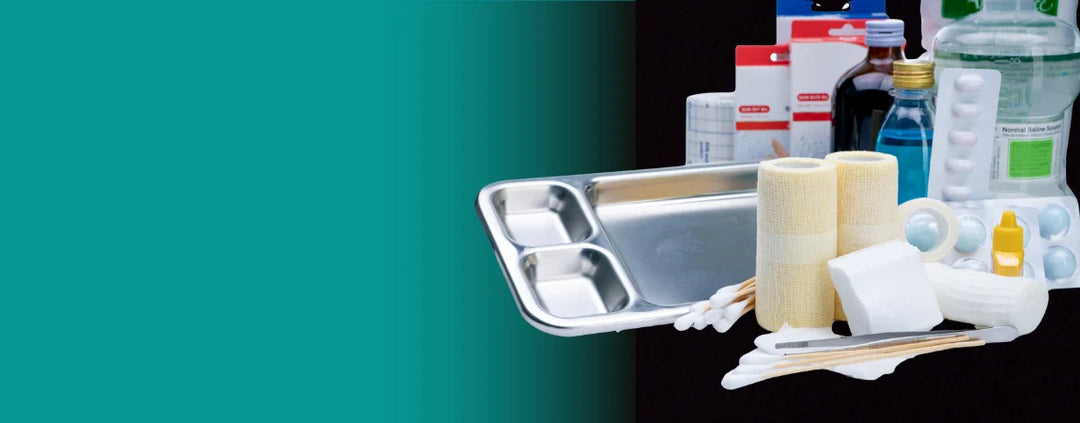Once a person sustains a wound, they can usually tell depending on the severity that scarring will follow. As scarring is a natural part of wound healing, there is little a person can do to prevent them from forming. However, that isn’t to say that you can’t control the way your scar develops and looks after surgery or injury. Scar tissue is the result of a complex and dynamic wound healing process that follows a well-understood pattern. By understanding how scars form and what is required for wounds to heal effectively, you can ensure that you don’t develop unsightly scars.
Continue reading to learn more about how you can prepare for scars and what products are available to help them fade over time.
Scars and the wound healing process
Continue reading to learn more about how you can prepare for scars and what products are available to help them fade over time.
Scars and the wound healing process
Scars form as a result of tissue damage in the skin. Small cuts or scrapes such as a paper cut, for instance, likely will not turn into a scar. This is because the middle layer of the skin, otherwise known as the dermis, has to be penetrated for scar tissue to develop. Major wounds from surgery or injury such as a burn or severe laceration that requires medical attention will likely be followed by scarring.
Wound healing follows an intricate four-stage process. These stages are hemostasis, inflammation, proliferation, and maturation. Hemostasis, the first stage, occurs as soon as a wound is attained. This is when blood vessels constrict (vasoconstriction) to slow blood loss. A blood clot will form to further impede the loss of blood during this stage. The second stage, inflammation, is marked by swelling, pain, and heat at the wound site. This is to help the wound from contracting an infection. Proliferation, the third stage, is marked by new tissue formation. The final stage, maturation, is also known as remodeling because the new tissue begins to restructure to regain some of its former integrity and functionality. The final result is a scar.
Pre-surgery preparation to minimize scarring
The blood in our bodies brings many much-needed nutrients to our skin. This is especially important during wound healing when blood plays a very active role to mend the damage and bring us back to a state of homeostasis. What we put into our bodies and how we care for our wounds are big factors in how our scar heals later on. However, many people wonder what they can do prior to surgery to prepare for scarring down the road. It’s always best to listen to the advice of your doctor before your big day, but it can also be helpful to heed the advice listed below.
Don’t: Drink alcohol the night before your surgery. Alcohol, especially in large amounts, can be detrimental to the wound healing process as it suppresses the immune system. When you have a wound, it’s imperative that your immune system is in good working order to fight off bacteria and other harmful pathogens.
Do: Eat nutritious and organic foods. Some examples include fish, vegetables, fruits, whole grains, nuts, and dark chocolate. Our bodies can use the extra vitamins and minerals that these foods contain, especially during a period of wound healing and recovery.
Don’t: Consume a diet high in sugars and unhealthy fats. The body requires adequate amounts of protein, healthy fats, carbs, and vitamins to perform and heal optimally.
Do: Stop smoking for at least a week or longer before your surgery day. Nicotine is a vasoconstrictor that suppresses nutritional blood flow to the skin. This can increase the risk of complications during your surgery and disrupt the wound-healing process.
Don’t: Stress out too much! Research shows that psychological stress can have a negative impact on your body’s immune system and ability to repair itself. This is mostly due to an increase in cortisol hormones in your body.
Do: Use silicone gel sheeting and ointments to help flatten and fade your scar. Silicone gel technology is the only clinically-proven scar therapy currently available for topical use. Silicone gel helps diminish and prevent excessive scarring like keloids and hypertrophic scars. Silicone gel is safe and effective for all skin and scar types and can be purchased through your physician or online.
Wound healing follows an intricate four-stage process. These stages are hemostasis, inflammation, proliferation, and maturation. Hemostasis, the first stage, occurs as soon as a wound is attained. This is when blood vessels constrict (vasoconstriction) to slow blood loss. A blood clot will form to further impede the loss of blood during this stage. The second stage, inflammation, is marked by swelling, pain, and heat at the wound site. This is to help the wound from contracting an infection. Proliferation, the third stage, is marked by new tissue formation. The final stage, maturation, is also known as remodeling because the new tissue begins to restructure to regain some of its former integrity and functionality. The final result is a scar.
Pre-surgery preparation to minimize scarring
The blood in our bodies brings many much-needed nutrients to our skin. This is especially important during wound healing when blood plays a very active role to mend the damage and bring us back to a state of homeostasis. What we put into our bodies and how we care for our wounds are big factors in how our scar heals later on. However, many people wonder what they can do prior to surgery to prepare for scarring down the road. It’s always best to listen to the advice of your doctor before your big day, but it can also be helpful to heed the advice listed below.
Don’t: Drink alcohol the night before your surgery. Alcohol, especially in large amounts, can be detrimental to the wound healing process as it suppresses the immune system. When you have a wound, it’s imperative that your immune system is in good working order to fight off bacteria and other harmful pathogens.
Do: Eat nutritious and organic foods. Some examples include fish, vegetables, fruits, whole grains, nuts, and dark chocolate. Our bodies can use the extra vitamins and minerals that these foods contain, especially during a period of wound healing and recovery.
Don’t: Consume a diet high in sugars and unhealthy fats. The body requires adequate amounts of protein, healthy fats, carbs, and vitamins to perform and heal optimally.
Do: Stop smoking for at least a week or longer before your surgery day. Nicotine is a vasoconstrictor that suppresses nutritional blood flow to the skin. This can increase the risk of complications during your surgery and disrupt the wound-healing process.
Don’t: Stress out too much! Research shows that psychological stress can have a negative impact on your body’s immune system and ability to repair itself. This is mostly due to an increase in cortisol hormones in your body.
Do: Use silicone gel sheeting and ointments to help flatten and fade your scar. Silicone gel technology is the only clinically-proven scar therapy currently available for topical use. Silicone gel helps diminish and prevent excessive scarring like keloids and hypertrophic scars. Silicone gel is safe and effective for all skin and scar types and can be purchased through your physician or online.
Biodermis is an innovative market leader with 30 years of expertise in the medical silicone industry. Visit Biodermis.com today to explore a complete range of scar management and post-operative care solutions.
PHYSICIANS AND MEDICAL PROFESSIONALS: REFER OR RESELL?
Biodermis offers custom tailored referral programs designed to simplify and reduce the cost of your patients' post-op care. Additionally, we offer professional pricing if you opt to retail our products. Give us a call at 800.322.3729, and we will be happy to provide additional details on these programs.



